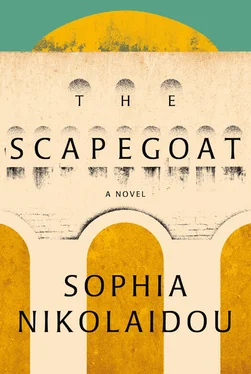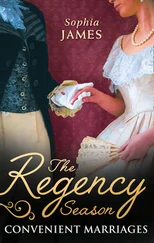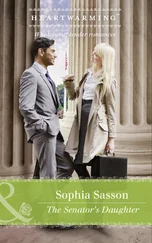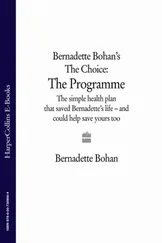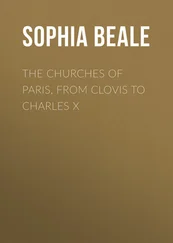Grandpa Dinopoulos nodded from his wheelchair. Once the kid got going, there was no stopping him. It was clear as day, a career in law would suit him perfectly. Grandma Evthalia was proud. She had raised that child. And he had managed on his own, without anyone’s help.
— Here you go, sir.
Minas handed Soukiouroglou a typed version of his paper.
— Certainly, was all the teacher deigned to reply.
The kid stood before him, waiting.
— Eighteen out of twenty, Souk said. There’s some excellent work here, but I can’t ignore the gaps and oversights. As for taking a position, I would suggest that you leave the kind of hesitation I saw in your presentation to older, more experienced scholars. You’re still young. For the time being, you should take a stance.
Minas shrugged.
— You obviously don’t care either way, Soukiouroglou muttered.
Minas lowered his head. He turned to leave, but then turned back again. He might as well say what he had to say now, rather than to himself later in his room.
— Sir, why do you insist on laying blame? If we accuse one person, we let everyone else off the hook, and there were lots of people who played a part. Sure, none of them actually lifted the gun. But the situation was created by friends and enemies both. Right or wrong, the result is the same: an innocent man went to jail. Case closed.
Soukiouroglou looked at him.
For the entire quarter, Minas had been reading Souk’s favorite books, packed to the gills with words and ideas, which the teacher had recommended as a secondary, though still useful, bibliography. In studying them carefully, in marking passages with his highlighter, Minas had come to realize that justice is an abstract concept. Perfect on paper. But in practice, riddled with qualifications, asterisks, interpretations, clashes of opinion. History books offered no catharsis, as tragedies did; there were no happy endings, as there were in fairytales or soap operas. What he would have liked more than anything was to talk to Souk about that. But his teacher wanted to have the upper hand. And with Minas that wasn’t always an option.
1948–2010 BEFORE AND AFTER: “THINK BEFORE YOU LEARN”
NIKIFOROS DINOPOULOS, LAWYER FOR MANOLIS GRIS
I don’t underestimate power. I don’t judge anyone for having it. What troubles people — and rightly so, if you ask me — is how a nation’s leaders shirk their responsibilities. They insist on blaming outside forces for the country’s woes rather than their own decisions. They refuse to acknowledge their own failures.
Justice means each individual getting what he deserves. And virtue is the pursuit of justice. At least that’s what Aristotle tells us. It sounds old-fashioned, doesn’t it? Today’s lawmakers are less strict about such things, more willing to water their wine. Legislation has a responsibility to be neutral , they all say. It has no right to convert, or to try to force good on anyone. Virtue isn’t about coercion. Justice, above all, implies freedom of choice.
All sorts of things were said about the case, which most people separated into lies and truths. The reporters who got involved never considered what we might call inexactitudes. The ignorant fools couldn’t tell the difference. Whereas the lawyers’ evasions clearly demonstrate respect for the law. They took care to package the evidence well, to keep up pretenses to the very end. Sometimes they departed from the law, other times they took refuge in legal fictions, or interpreted the law in a particular manner. But they never flew in the face of the law, they always paid tribute to the obligation to remain honest. They maintained their professional dignity.
They made their decisions. And since the situation demanded it, they moved forward into action. Hindsight is always twenty-twenty, and it’s easy for people to pass moral judgment. But those involved in the case never acted outside the law. They simply behaved like people who would.
Please don’t return to the issue of truth. If you think carrying a law book around ensures that justice will be served, I’m sorry, but you’re being naïve. Life is so much more complicated than that.
As for the evidence you refer to, I can’t help but laugh. I lived through two wars and witnessed plenty of military tribunals, and the idea that reality is single and undeniable amuses me. Reality is the ultimate construction — just ask the lawyers and journalists, whose careers rest on that construction. Other people have trouble understanding that. What they summarily call truth is rarely sufficient. Even more rarely does it offer any kind of solution.
The dictatorship of the truth. The tyranny of good intentions. There’s nothing more dangerous for a family or a country. Historians show up after the fact. They rummage through locked drawers, discover forgotten papers, conduct their research, pass judgment. When precisely did the Gris case begin? With the murder of Talas, or with the decisions that were made behind closed doors? In history there is no such thing as progress, change, advancing toward the good or sinking into the abyss. I don’t care what the survivors say.
Before and after. That’s all there is. And between, a chasm.
Anyone who investigates the Gris affair needs to understand one thing: no one made any decisions without agonizing over them first. But everyone felt that the country’s future was at stake. The greatest good for the greatest number, that’s the basic rule of governance. You weigh the options and settle on the least of all evils.
Words rarely help. They can’t separate right from wrong. In situations like these everything is a matter of diplomacy. Intentions often have some degree of dignity. Documents don’t. That, perhaps, is the fundamental difference between the two.
It would surprise you how easily a piece of evidence can disappear, a signature can be forgotten.
The Gris case: Res ipsa loquitur .
MARINOS SOUKIOUROGLOU
Marinos Soukiouroglou hated the school. He felt an instinctive disgust for all educational systems, and for the Greek one in particular. He considered it spirit-crushing, obsessive and megalomaniacal. He despised its shallow formalism. The classes in ancient Greek language and culture — which the overwhelming majority considered the crown jewel of the humanities — primarily served, according to his more rarified understanding, to bolster national pride.
What dismayed him most was how history was taught. Students learned to think in a static manner, as if issues had a diachronic, unchanging character. For the Greek school system historicity was a theoretical concept, essentially unknowable. Meanwhile, most people Souk knew, particularly his colleagues but others as well, had received some reflected version of the European reception of ancient Greek glory and invested it with existential meaning, rather than trying to understand it as a historical construction. A sense of humor about such things was high treason. False modesty oppressed everything. He suspected that the root of all this was an unmentionable — yet systematically cultivated — puritanism that wanted knowledge to hurt. To be unmixed with pleasure or joy.
Even more annoying was the school’s simplistic notion of competition, as something limited to final grades. The holy ritual of the Panhellenic Exams gave an official form to the ambitions of students and parents alike. How you scored determined everything, or so most people believed.
For Soukiouroglou the exams were just a hazing ritual, a humiliation students had to endure in order to be initiated into the next stage of life. These days the average person on the street was fully convinced that the only option for a bright kid with a desire and ability to learn was to go to university, that anything else would result in certain disaster. Reality, however, didn’t correspond to that collective figment of everyone’s imagination — and when that dawned on members of the entering class, they ended up spending their days at the cafés on the edge of campus.
Читать дальше
